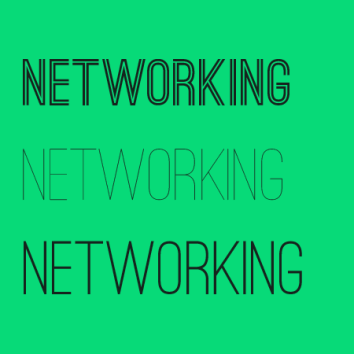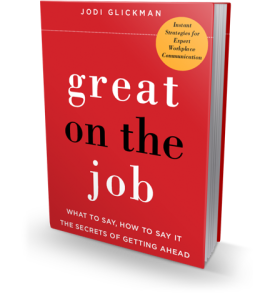 Does your gag reflex kick in when you hear the word “networking?” Images of business-card shufflers, compulsive happy-hour hoppers and me-monsters flash before my eyes…
Does your gag reflex kick in when you hear the word “networking?” Images of business-card shufflers, compulsive happy-hour hoppers and me-monsters flash before my eyes…
If your aim in networking is to befriend people with an angle and an agenda, then you likely are in a time of desperation in your life or you need to adjust your moral compass. Sadly, in Washington, or any city filled with Type-A overachievers, you encounter lots of these toxic networkers and social climbers.
Alas, it doesn’t have to be this way!
Before you start thinking that I’m all against networking, you should know that 50% of my 9-to-5 job is to network. My paycheck depends upon being decent at building strategic relationships. So, I’ve had to be intentional about how to build a meaningful network and not be slick and self-serving… because I just couldn’t live with myself otherwise.
Whether you like it or not, the old adage, “it’s not what you know, it’s who you know,” rings true in most fields. It was true for me. My first big-city internship opportunity and first job came at the recommendation of one of my good friends and mentors in college.
I didn’t cultivate this relationship because I wanted to work her to land me my dream job. We just became friends because we shared the same passions, I had fun hanging out with her and thought she was awesome at what she did. And you know what? Three years later, I was able to return the favor and recommend her for a job.
There are so many relationships in my life that open doors that I wouldn’t have been able to pry loose myself, and I think this is what makes being a part of a vast, diverse community (or what some may call, “A Network”) amazing. Three cords braided together is stronger than one all by its lonesome.
I think there are two vital perspectives to have to be an excellent networker, or heck, just someone who is an active participant in the world around you:
Find people interesting: PEOPLE ARE AMAZING. We travel the globe, we make music, we run marathons, we cure diseases, we invent crazy technologies, we adopt children. How will you ever know these things about your neighbors, seatmates on a plane, the stranger next to you at happy hour, etc., unless you ask them? Make it your mission to find out what amazing stories people are hiding. Forget networking, this is just plain fun.
Be more of a giver than a taker: When I used to help coach middle school volleyball players, we would play a game called “Givers and Takers.” We would set up a scrimmage and plant an encouraging Giver and whiny Taker on each team. It became obvious real quick who you wanted on your team. In every relationship, think more about how you can help the person you are befriending rather than what you can take from them. This is a no-brainer and it feels silly to even write it out, but for some reason, the “Giver” mentality flies out the window when some people put their “Networking” pants on.
These two perspectives manifest themselves into some practical tips for networking:
- Ask questions, listen intently (not just to words, but to body language also) and talk less.
- Be a connector. If you can, think of whom you might introduce to the person you meet that may be of value.
- Follow up. Did you mention a restaurant you love, an article you read, or some kind of help you offered? A nice follow up goes a long way.
- You’re more likely to establish a connection with people who you find interesting. Go places where these people are.
- See opportunity everywhere! I once got a job offer on a plane… I’ve also gotten a marriage proposal from a drunk Argentinian man. You win some, you lose some 😉
What are you best tips on building a meaningful network?





